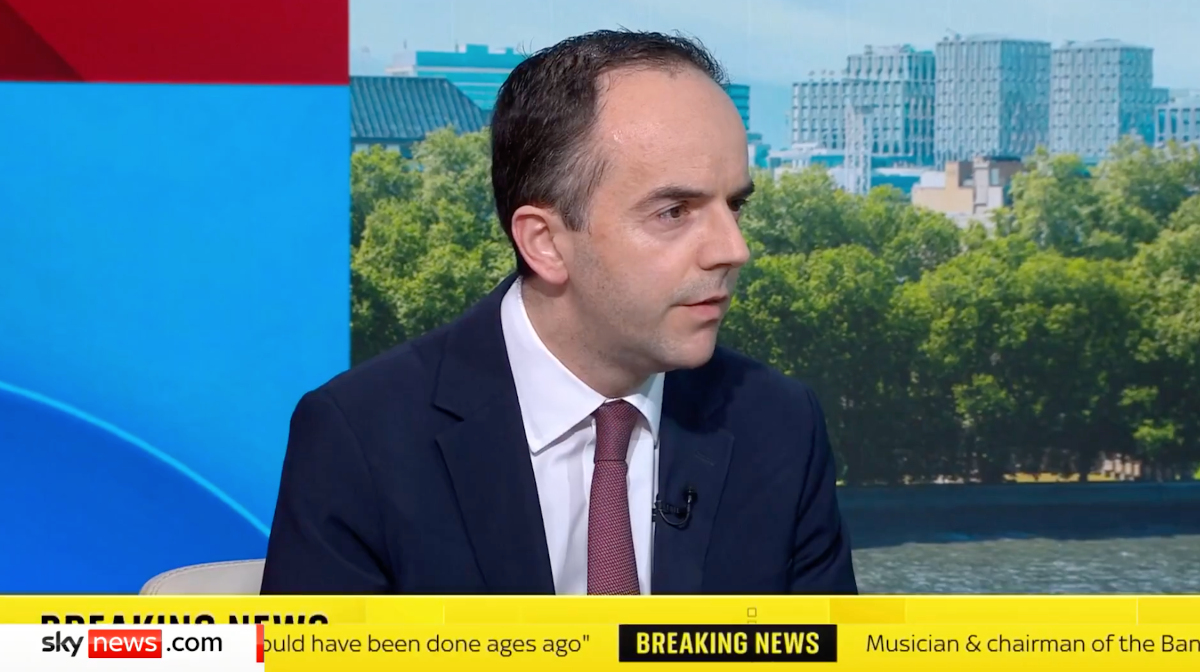James Murray: ‘You can only recognise a state once’
France’s decision to recognise the state of Palestine at the next UN general assembly has put pressure on Keir Starmer to decide whether he does the same, or stays in line with the US, risking a Labour mutiny. On Sky News this morning, treasury minister James Murray played for time, telling Trevor Phillips the UK is ‘committed to the recognition of Palestine’, whilst arguing that the government must use the moment it officially recognises the state to ‘galvanise change’. Murray noted that 140 countries already recognise Palestine, but there’s still ‘unbearable suffering’, and said the UK’s decision must be part of a ‘pathway to peace’.
Kemi Badenoch: ‘What I am seeing is Israel allowing humanitarian aid into Gaza’
As starvation grips Gaza, Israeli officials have attempted to either downplay its severity, or deflect blame onto Hamas or the UN. This morning, the musician Bob Geldof accused Israel of ‘lying’ about the situation. Trevor Phillips asked Tory leader Kemi Badenoch for her reaction to Geldof’s accusation. Badenoch said it has been an ‘unbelievably difficult situation’ and that she believed Israel was letting aid in. Badenoch said that a ceasefire would only happen when the hostages are released. Phillips asked if the images coming out of Gaza had caused Badenoch’s support for Israel to ‘waver at all’. Badenoch said they had not, and that she sees Israel as a country trying to defend itself from Iran and its proxies. Phillips pointed out that polling suggests the UK public is moving away from supporting Israel. Badenoch said that Hamas still controls Gaza, and we ‘cannot allow a terrorist organisation to win’.
Kemi Badenoch: ‘Labour are carrying out easy deportations, not the difficult ones’
Badenoch also criticised the government on immigration. She told Trevor Phillips the Conservatives had a deportation bill that had ‘significant measures’ around deporting foreign criminals, and said the government is ‘all too slow’ at deporting people now. Phillips pointed out that Labour have deported more people than the Conservatives did. Badenoch said that small boats crossing have increased by 42 per cent under Labour. Phillips asked if the Royal Navy should be used in the Channel to turn back the boats. Badenoch said the navy turning back boats wouldn’t be effective if people just kept trying to come back, and claimed the country needs a third country deterrent like the Rwanda scheme.
Badenoch: Farage is Corbyn with a pint and a cigarette
On GB News, Camilla Tominey asked Kemi Badenoch about Jeremy Corbyn’s new party, which already has more members than the Conservatives. Badenoch criticised the rise of populism, saying that if you can’t deliver on your promises you’ll be punished, as the Conservatives were. Tominey noted that the split on the left is now much more likely to benefit Nigel Farage than the Tories. Badenoch called Farage ‘Corbyn with a pint and a cigarette’, and referenced his calls for nationalisation and more welfare spending. The Tory leader claimed she would be honest with people, and have full plans for policies before announcing them.
Resident doctors on strike as public support dips
Trevor Phillips also spoke to British Medical Association chair Tom Dolphin. Phillips noted that 54 per cent of resident doctors are on salaries of over £75,000, and teachers earn far less. Dolphin argued that doctors had lost a fifth of the value of their pay over the years, while most other professions had recovered. Dolphin also pointed out that the salary amount included overtime and night shift pay, and suggested that doctors’ pay reflected the ‘immense responsibility’ they take on straight out of medical school. Phillips asked if Dolphin was bothered by some people in the country thinking that doctor strikes are unreasonable and are ‘endangering commitment to the NHS’. Dolphin said the BMA is worried about the workforce because doctors are being undervalued, and are ‘leaving the NHS in large numbers’.






Comments